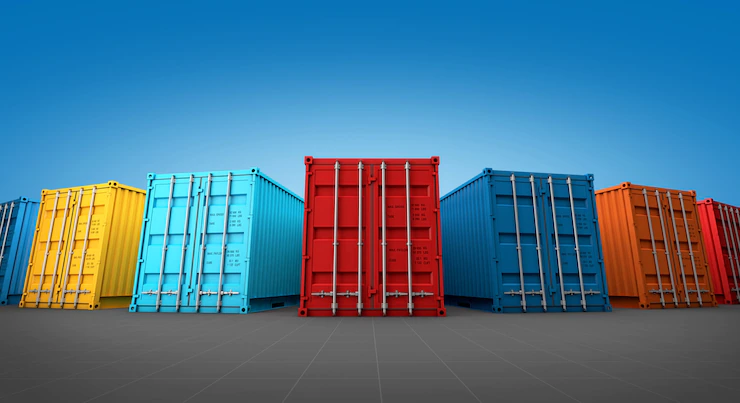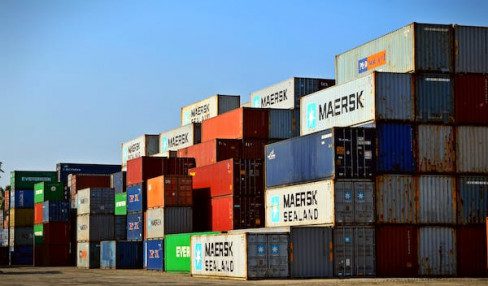Freight Broker Vs. Freight Forwarder – Key Differences
6 Mins Read
Published on: 26 October 2023
Last Updated on: 20 December 2024

toc impalement
In the world of shipping and getting stuff from A to B, two kinds of experts help out a lot: freight brokers and freight forwarders. Shipping goods from where they are made to where they are needed is complicated. As a result, that’s where the shipping business comes in. This article about freight forwarder vs broker will show you how they are different.
Understanding The Logistics Industry
These companies ensure that things get where they need to go when they need to without costing too much. It’s a big, complicated operation, and many businesses depend on it. Hence, this section is an introductory look at why the shipping business is essential, who helps make it work, and how it’s always getting more complicated.
Definition And Scope Of The Logistics Industry
The shipping business makes global trade work. It manages how goods, info, and services get from start to finish. As a result, this involves many steps, like moving stuff, storing it, and keeping track of it. As a result, many industries rely on shipping, from stores and factories to hospitals and online shopping. As a result, two key jobs that help make shipping work are freight brokers and freight forwarders.
Intermediaries In Streamlining Supply Chain Operations
In the complex world of shipping, intermediaries link different parties together. They simplify things and lighten the load on the people who send and carry goods. Freight brokers find a good match between those who need to ship things and those who move them. Therefore, they set the price, plan the trip, and deal with paperwork.
Complexity Of Global Supply Chains
Shipping isn’t as simple as it used to be. The global world, new tech, and changing customers want to make shipping more complex. Now, businesses often get stuff from all over the world.
That makes shipping a challenging puzzle to solve. Intermediaries like freight brokers and forwarders know how to handle these challenging puzzles. Moreover, they ensure things get where they’re going, on time and by the rules.
Therefore, remember this when you are on a freight forwarder vs broker.
Freight Brokers
Freight brokers help move goods by linking people who need to ship things with those who carry them. Here’s a breakdown of what they do, their benefits, and their drawbacks:
The Role Of Freight Brokers
Freight brokers are the go-betweens for shippers and carriers. They know a lot about shipping and usually work independently or for a firm. These companies don’t own any trucks or ships, but they make shipping easier.
Responsibilities And Functions
Freight brokers match shippers with carriers using their broad contacts. They think about what’s being shipped, how much, where it’s going, and when it needs to arrive. These companies also negotiate prices and set up contracts. Moreover, they also handle required paperwork like shipping documents and insurance forms.
Advantages Of Using A Freight Broker
Working with like a freight broker in Australia can provide the following perks:
- They know the ins and outs of shipping.
- Services free you up to focus on your main business tasks.
- Freight brokers often get you good deals on shipping rates.
- They can quickly adapt to changes in the market.
Limitations Of Freight Brokers
Here are the limits of what a Freight Forwarder can do:
- No Own Assets – They don’t own any shipping tools and depend on other carriers.
- Limited Reach – Their network might not cover all areas.
- Rules Matter – They must follow shipping rules closely, or they could face fines or lose their license.
Freight Forwarders
Freight movers help goods get across borders. They are essential in shipping things around the world. Here are what they do, their duties, pros, and cons.
The Role Of Freight Forwarders
Freight movers focus on moving stuff from one country to another. They work between the person who sends goods and the company that carries them.
Responsibilities And Functions
They plan how goods will move across countries. Plus, they know all the rules and do all the paperwork. Some also offer storage and help make the supply chain better.
Advantages Of Using A Freight Forwarder
Reaching out to freight forwarder services offers several key advantages, such as:
- They know a lot about shipping rules and deals between countries.
- It saves businesses time so they can focus on their primary tasks.
- These companies can get reasonable shipping prices because they have an extensive network.
- They are good at seeing and managing risks.
Limitations Of Freight Forwarders
While freight forwarders are convenient, some factors draw down on their service:
- Cost – They have more expenses, but often, what you save in time makes up for it.
- Limited Control – You might not have a lot of say in how things are shipped.
- Communication Challenges – If you don’t talk clearly, it can lead to mistakes or delays.
Freight Brokers Vs. Freight Forwarders
This part discusses the significant differences between freight brokers and freight forwarders, essential to improving your shipping.
Regulatory And Oversight Licensing
Freight brokers and forwarders have different rules to follow. Each country has its rules; sometimes, you need unique papers for imports and exports.
Scope Of Services
Freight brokers help to set up shipping. They do more by helping with paperwork, clearing customs, and sometimes even storing goods, which is especially helpful for shipping to other countries.
Geographic Reach
Freight brokers work in different places, depending on where they can find carriers. Freight forwarders usually work internationally and know how to handle shipping across borders.
Relationship With Shippers And Carriers
Both brokers and forwarders work with shippers and carriers. However, brokers only help connect them, while forwarders work closely with everyone involved since they are the primary contact for all shipping needs.
Documentation And Paperwork
Brokers handle some of the papers needed for shipping but not for international trade. Forwarders handle all sorts of papers, making sure everything is correct.
Cost Structure And Compensation
Brokers make money by adding a fee to the carrier rates, which can make costs unclear for shippers. Forwarders are more open about their fees, including charges for extra services like customs clearances.
When To Choose A Freight Broker
In shipping, deciding between a freight broker and a forwarder is critical. This part explains when it’s best to use a broker.
Scenarios Where A Freight Broker Is Preferred
If you don’t have contacts with carriers, brokers are handy. They excel when you have urgent shipments and can help you find the best shipping rates.
Industries Commonly Utilizing Freight Brokers
E-commerce, manufacturing, agriculture, retail, and construction sectors often use brokers since they help move everything from perishable items to construction materials.
Challenges And Emerging Trends
This part talks about the hurdles and new developments in shipping.
Common Challenges
Both brokers and forwarders face rising costs and changing laws due to how market ups and downs affect their work.
The Impact Of Technology
New technology is changing the industry; automation, data analytics, and AI help in more innovative work.
Sustainability Practices
Sustainability is vital, and brokers can now support green transport options. Forwarders can focus on eco-friendly international shipping methods.
Future Of Intermediaries In Logistics Industries
The shipping world is constantly changing because of new trade rules, tech, environmental rules, and what customers want. Freight brokers and forwarders help a lot in today’s shipping world. They link the people sending stuff and those carrying it, making things easier.
Honestly, the freight forwarder vs broker is a pointless discussion as both play a vital role in the global supply chain. Therefore, other of these processes are very important.
ead Also:


















Comments Are Closed For This Article